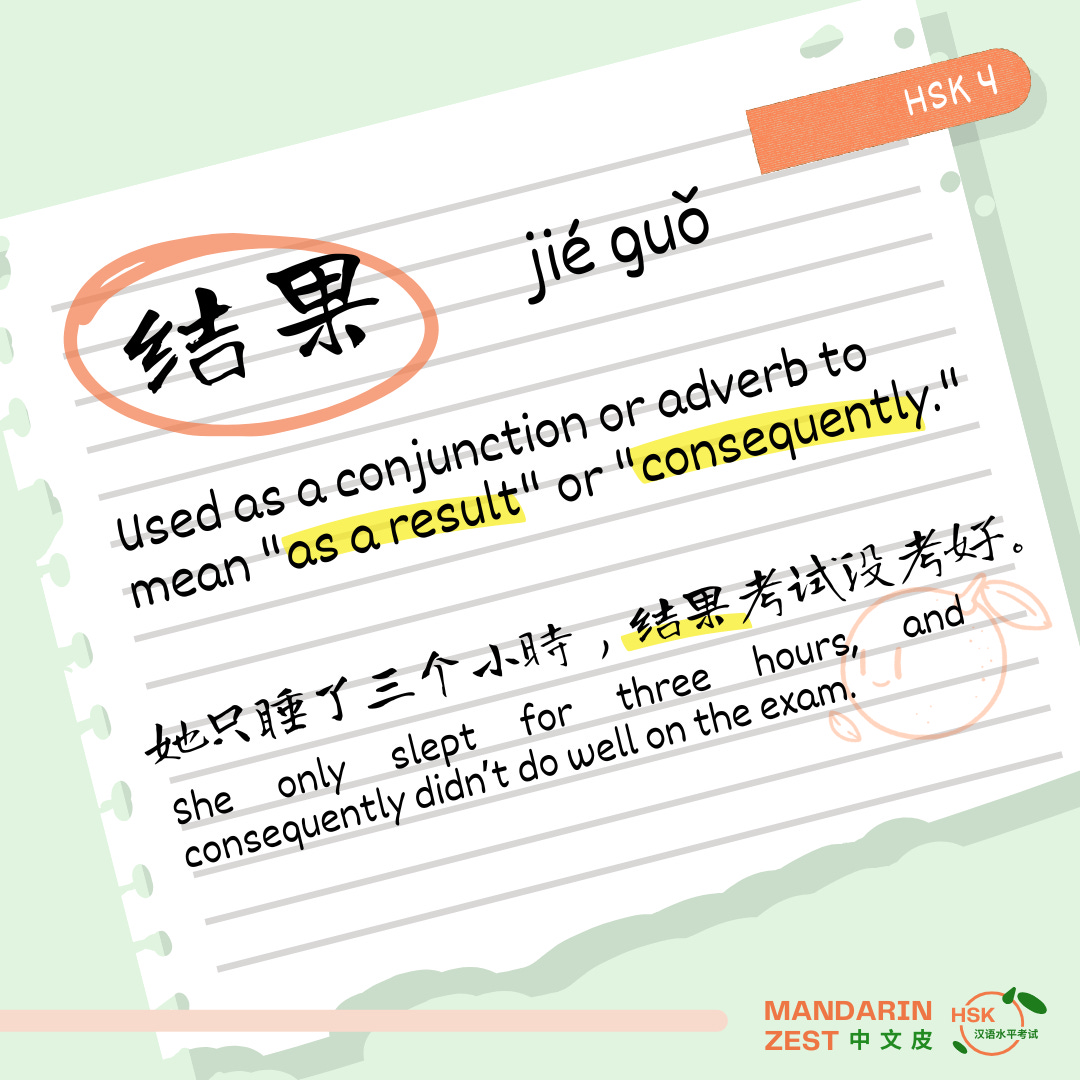结果 (jiéguǒ) is used as a conjunction or adverb to mean "as a result" or "consequently." It usually connects two parts of a sentence, where the first part gives a reason or situation, and the second part (starting with 结果) shows the outcome—often unexpected or undesirable.
Structure:
Reason / Condition,结果 + Result
Sample Sentences
我本来只是想看看,结果买了一大堆东西。I originally just wanted to take a look, but ended up buying a bunch of stuff.
他没好好复习,结果没通过考试。He didn’t study properly, and as a result, didn’t pass the exam.
我们出门太晚了,结果赶不上火车。We left too late, and consequently missed the train.
In a Text
昨天我和朋友约好一起去爬山。我们计划早上七点出发,可是他起晚了,一个小时后才到。我们匆匆忙忙赶去车站,结果刚好错过了最后一班去山上的公交车。后来我们只好改计划,去附近的公园走走。虽然有点失望,结果我们在公园里遇到了一些很有趣的人,还一起打了篮球,玩得也很开心。
Yesterday, my friend and I planned to go hiking together. We planned to leave at 7 a.m., but he woke up late and didn’t arrive until an hour later. We rushed to the bus station, but as a result, we just missed the last bus to the mountain. So we had to change our plans and took a walk in a nearby park instead. Although we were a bit disappointed, we ended up meeting some interesting people in the park, played basketball together, and still had a great time.






